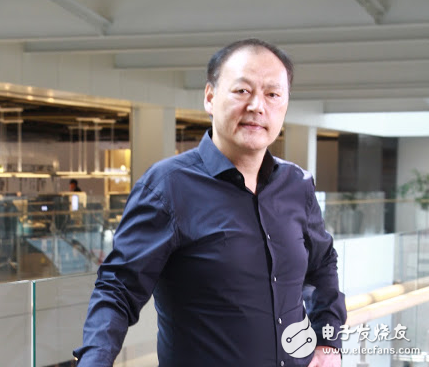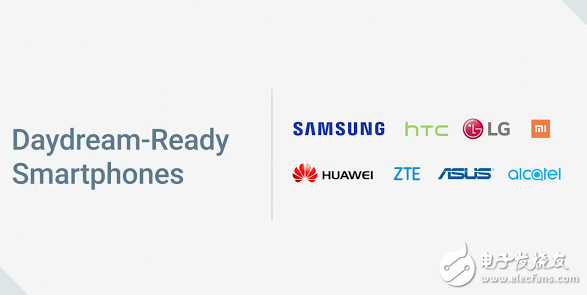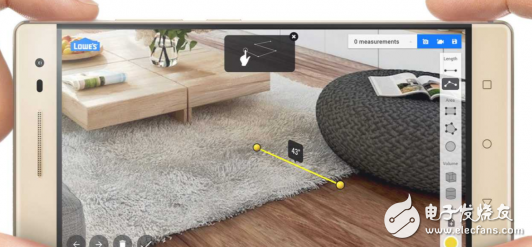In 2016, it was called the first year of virtual reality (VR). With the VR devices of various major manufacturers entering the consumer market one after another, if this year is the first year of VR hardware, in 2017, it is the first year of application, and consumers have already Ready for a new wave of technological revolution? At this year's DigiAsia conference, VR became an important discussion topic, including VR market players including Zhou Yongming, Chairman of Digital Kingdom, Bao Yongzhe, Deputy General Manager of HTC Virtual Reality, and Aaton Luber, Google VR Partnership Manager.
Digital Kingdom Zhou Yongming: VR brings a new wave of technological revolution“How does VR and AR affect our future? Just like Trump has chosen the president, the world is so exciting, it’s a moment of change, everything is possible.†Chairman of Digital Domain Zhou Yongming said with a smile. Zhou Yongming was the former CEO of HTC and took over as chairman of the digital kingdom of Hollywood special effects company in 2015. He actively invested in the VR industry because he is optimistic that VR will bring a new wave of technological revolution.
Zhou Yongming imagines the future of VR as a "social computer platform." For example, if someone has a bad and boring life in real life, he has a virtual life on the platform, and his virtual life is against him. It makes more sense. On this social platform, everyone can be online together, and everyone can do what they want and build their own world. What possible business models will there be? For example, this platform does not charge a usage fee, everyone can join, when you want to go to another planet, you have to pay extra fees, there will be a lot of e-commerce, provide what you want to buy.
Such a scene sounds very mysterious, but Zhou Yongming believes that this can definitely be practiced through time. “I believe that VR is the next big bang 100%.†He said that VR will be the focus of innovation, the driving force for the industry, and the future revolution is worth looking forward to.

â–² Zhou Yongming, the former CEO of HTC, is optimistic about the development potential of VR. He joined the digital kingdom of Hollywood special effects company last year.
For example, Zhou Yongming is optimistic that Google’s Daydream platform will further stimulate the development of the VR industry next year; Facebook’s social VR is exciting; in addition, Alibaba’s introduction of VR in this year’s double 11 also shows that the e-commerce field will be VR. Great opportunity. "This is not to say how good he is now, but everyone sees the future. VR, AR are coming, and it will happen in three to five years. VR, AR, Social, IoT, 5G will all be connected and bring us Great opportunity."
HTC Bao Yongzhe: 2017 is the first year of VR contentHTC began investing in VR in 2014. The optimistic view is also the potential of VR to “change the world.†Bao Yongzhe, deputy general manager of HTC Virtual Reality Department, said that VR is a laboratory technology. “No matter what I say, if you don’t touch After that, you won't know what kind of change he will bring."
In the future, the application of VR will not be limited to the game industry. "Otherwise, we will not say that he can change the world." Bao Yongzhe said that VR can be applied in education and applied in the automotive industry. Now car dealers want to incorporate VR technology because everyone I want to open the showroom in the city center, but the cost is too high. Through VR, all the cars can be displayed in a small space: VR is a 3D display, and even the art design will change. In addition, Alibaba has introduced the “Buy+†VR shopping service in this year's Double 11 to let customers see the actual products, and are more interested in buying and changing the retail experience.
Bao Yongzhe, deputy general manager of HTC Virtual Reality Department, believes that many VR devices have been seen this year, and the goal next year is to deepen the content.
This year, HTC also cooperated with Tang Feng in the live broadcast program, and conducted remote interviews through VR. VR broke the distance between time and space, and removed many obstacles and restrictions. Bao Yongzhe believes that in the future, social media will also be greatly changed from VR, from now peer-to-peer communication, such as LINE, Messenger, WeChat, etc., to the sharing of all "environments" including text and video.
After 2014, VR devices have sprung up. If this year is the first year of VR hardware, the most important thing next year is to deepen the content. "Without content support, there is no way to penetrate consumers." Bao Yongzhe said that now everyone plays computer The game LOL can play for hundreds of hours, but now there is no content on VR that can be played for so long, these are part of the depth of content. It will be the most popular game category next year, and will continue to see VR movies and enterprise category applications. Now, HTC has set up its own VR store VivePort, launched the VIVE X accelerator program, "VR is worth looking forward to, now hardware and software platform accelerators are available, don't wait." Bao Yongzhe said.
Google: When the content catches up with the device, the world will change dramaticallyGoogle currently owns the VR platform Daydream, and this year launched the first mobile phone equipped with Tango technology, becoming Google's two major layouts in the VR and AR fields. Aaton Luber, Google VR partnership manager, is optimistic that next year will be a year of rapid take-off.
Aaton Luber said that Google’s investment in VR and AR is to turn Google’s vision of “Organize the world’s informaTIon and make it universally.†into “Organize the world’s experience and make it universally.†This incident brought to consumers, "The way we look at him is very easy, organize the information of the world, let him use it for everyone, and make the world experience better."

â–² Google launched the Daydream platform at this year's Google I/O conference. (Source: Google release screenshot)
Since the YouTube video era, Google has been focusing on the development of the mobile field, and when Google launched Google Cardboard in 2014, it was not expected to be so successful. Google's original idea was that VR was a mobile, socially accessible, accessible experience. This is what Google learned from Google Cardboard and will now be further applied to the Daydream platform. Aaton Luber believes that VR is a revolution in technology. It is the next device after the host computer, computer, tablet, and mobile phone. It is the next technological development process and an important interaction point of technology. This is why Google launched Daydream.
In the hardware segment, Google has launched its own VR headset Daydream View, and the mobile phone Pixel that supports Daydream View. Next year, more and more mobile phones will support the Daydream platform. Aaton Luber said that it is very important that everyone has already seen it. When it comes to equipment, the next step is the management of content. Google works with content developers and developers such as news media and museums. When the content can catch up with the current equipment, the world will change dramatically. "VR and AR will move forward very quickly. Fast, someone asked if it would be too late to enter now? I don't think so. It is the moment of mobilization."

â–² Lenovo's Phab 2 Pro phone, released in June this year, is the first phone compatible with Google Tango. (Source: Lenovo's official website)
Fiber Optic Patch Panel,Fiber Patch Panel,Fiber Distribution Panel,Optical Patch Panel
Cixi Dani Plastic Products Co.,Ltd , https://www.danifiberoptic.com
